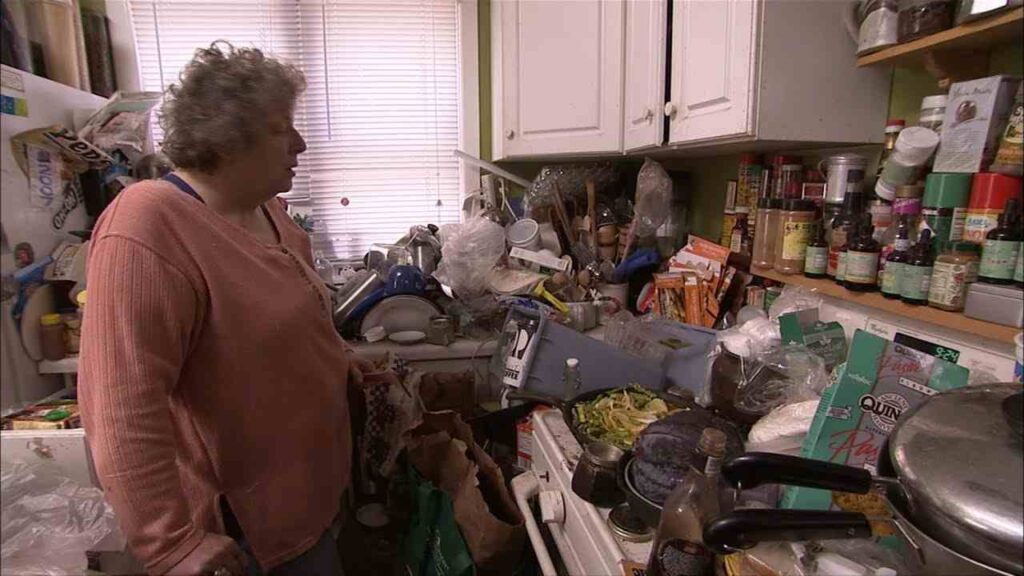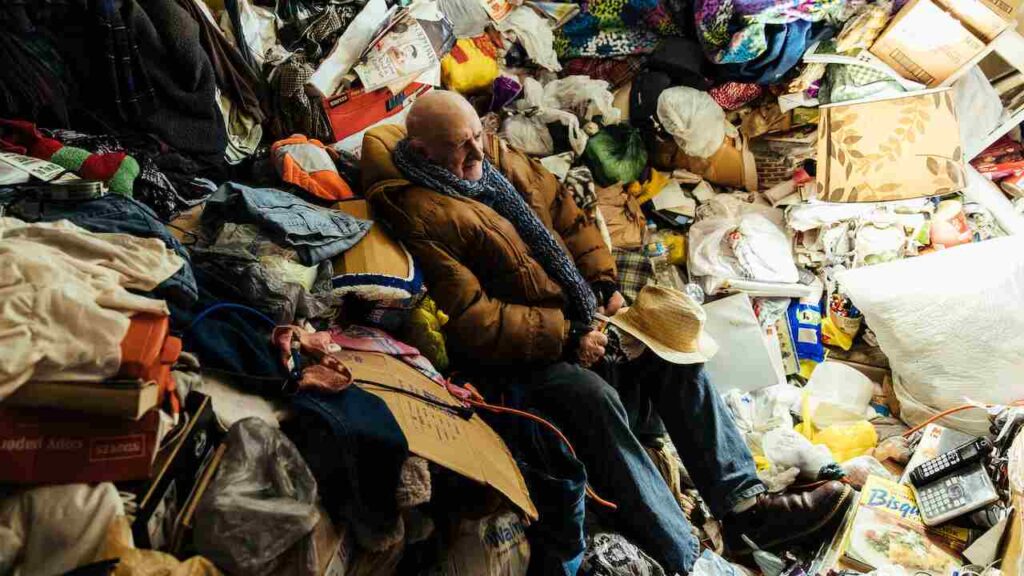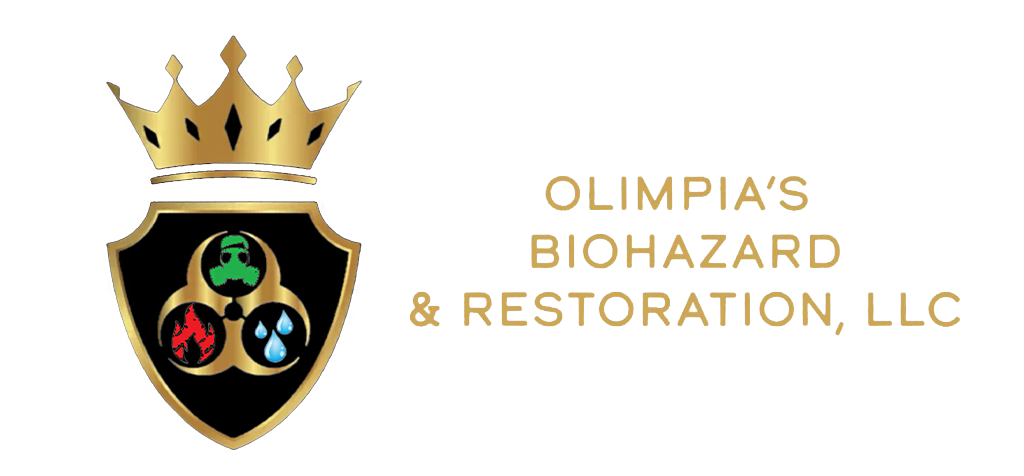Hoarding, the excessive accumulation of possessions, can take a particularly heavy toll on seniors’ physical and emotional well-being. It’s not just about clutter; it’s about ensuring the safety and quality of life for our beloved older residents. Let’s delve with Olimpias Biohazard into the unique challenges and compassionate solutions surrounding hoarding and hoarder cleanup for seniors in Portland. As the Rose City’s population ages gracefully, it brings with it a set of distinctive concerns, including the potential for hoarding disorders to emerge or worsen among the elderly.
In this exploration, we’ll shine a light on how Portland addresses hoarding issues among its senior population, recognizing the unique challenges they face as they age gracefully. We will highlight the essential role of professional hoarder cleanup services in restoring safety and cleanliness to their living environments. Additionally, we’ll delve into the robust support networks that collaborate to provide holistic assistance, addressing not only the physical clutter but also the emotional and mental well-being of our cherished seniors.


Understanding Hoarding in the Senior Population:
Seniors often face distinct challenges, such as physical limitations and increased isolation, which can exacerbate hoarding tendencies. Hoarding and Animal Hoarding Cleanup in Portland is a critical aspect of addressing these complex issues among seniors. Recognizing the nuances of hoarding in this demographic and tailoring cleanup and support services accordingly is essential for promoting safe, healthy living environments and the well-being of both seniors and their animal companions. Understanding these unique manifestations and triggers among senior hoarders is a fundamental step towards compassionate and effective intervention.
Unique Challenges Faced by Senior Hoarders:
Signs That Hoarding Cleanup is Needed in Portland Homes often become evident as seniors face challenges related to aging. Physical limitations may hinder their ability to maintain their living spaces, while social isolation can exacerbate hoarding tendencies due to reduced oversight and support. Tailored solutions must address these interconnected issues, focusing not only on decluttering but also on enhancing seniors’ quality of life and emotional well-being. Understanding the signs and triggers that necessitate hoarding cleanup is essential for early intervention, ensuring that seniors in Portland receive the support they need to maintain safe and healthy living conditions as they age.


Aging Gracefully in the Rose City: Portland’s Senior Demographic:
Tailoring cleanup procedures to align with the evolving needs of aging residents ensures that the city remains proactive in preserving the well-being and safety of its seniors. The Process of Hoarding Cleanup is a vital component of addressing hoarding issues among Portland’s growing senior population. As more seniors call Portland home, there is a heightened urgency to understand the dynamics of hoarding disorders in this demographic. By examining the nuances of this demographic shift, Portland can continue to adapt and develop strategies that not only address hoarding challenges effectively but also promote a higher quality of life for its senior community members.
The Physical and Emotional Toll of Hoarding on Seniors:
Seniors facing hoarding challenges often experience deteriorating physical health due to unsanitary living conditions, increased risk of falls, and exposure to allergens and hazards. Additionally, the emotional burden of hoarding can lead to social isolation, strained relationships, and diminished quality of life. This section highlights the multifaceted toll that hoarding can have on elderly individuals, emphasizing the urgency of effective intervention and support to alleviate their physical and emotional distress, ultimately ensuring a healthier and happier senior population in Portland.
The Role of Professional Hoarder Cleanup Services:
In addition to their technical skills, these professionals approach hoarding cleanup with a deep understanding of the emotional complexities involved, particularly when assisting senior individuals. They provide not only a clutter-free environment but also emotional support and respect for the memories and attachments seniors may have to their possessions. This holistic approach ensures that seniors in Portland receive the comprehensive assistance needed to regain control of their living spaces and improve their overall quality of life.


Preserving Dignity: Portland’s Compassionate Approach:
This commitment extends to fostering a culture of empathy and understanding, where seniors can openly seek help and support without fear of judgment. By prioritizing the dignity and well-being of its senior citizens, Portland not only addresses hoarding issues effectively but also reaffirms its role as a compassionate and inclusive community that values and respects the contributions and needs of its elderly residents.
Building Supportive Networks for Seniors:
These support networks act as a crucial safety net, providing emotional, practical, and social assistance to seniors facing hoarding disorders. They help create an environment where seniors feel understood, valued, and encouraged on their journey to overcoming hoarding challenges. By engaging family, friends, and community resources in a collaborative effort, Portland strengthens its commitment to preserving the dignity, health, and well-being of its senior population, ensuring that no one faces hoarding-related issues alone.
Community Resources and Outreach Programs:
These resources encompass mental health counseling, peer support groups, and educational workshops tailored to the unique needs of senior hoarders. Additionally, outreach programs engage directly with the community to raise awareness and offer assistance when hoarding challenges are identified. Together, these services create a robust support system that not only addresses the immediate issues but also fosters a culture of empathy and understanding, ultimately ensuring that Portland’s seniors receive the comprehensive support they require to manage hoarding disorders and lead fulfilling lives in their later years.
Recognizing Early Signs and Interventions:
Early detection and intervention not only prevent hoarding from reaching critical levels but also reduce the emotional distress and health risks associated with the disorder for seniors. By fostering awareness and providing guidance on recognizing signs and symptoms, individuals, families, and communities can proactively support their senior members in maintaining safe and clutter-free living environments. Timely action can make a significant difference in enhancing the quality of life for seniors while addressing hoarding challenges effectively, reinforcing Portland’s commitment to the well-being of its aging population.
Empowering Seniors on the Path to Recovery:
It also highlights the importance of tailoring interventions to individual needs, acknowledging that empowerment means respecting their choices while guiding them towards healthier living conditions. Ultimately, empowering seniors in their journey to overcome hoarding disorders fosters a sense of control, autonomy, and improved well-being, ensuring that they lead fulfilling lives in their senior years.
The Vision for a Hoarding-Free Senior Community in Portland:
This vision involves not only cleaning up physical clutter but also fostering a culture of understanding and empathy within the community, where seniors receive the support they need to age comfortably and gracefully. By implementing comprehensive strategies and collaborating across various sectors, Portland aspires to be a place where senior citizens can thrive, unburdened by the challenges of hoarding, and enjoy their later years in safety, health, and happiness.
Conclusion:
In conclusion, addressing hoarding among the elderly in Portland demands a holistic and compassionate approach. Recognizing the unique challenges posed by aging, including physical limitations and social isolation, is essential. The city’s growing senior population underscores the need for tailored solutions that encompass therapy, support networks, and professional cleanup services. By understanding the nuances of this demographic shift and collaborating across various sectors, Portland can ensure that its elderly residents receive the comprehensive support they require to overcome hoarding disorders.
FAQs:
How do you treat hoarding in the elderly in Portland?
Treating hoarding in the elderly in Portland typically involves a multidisciplinary approach, including therapy, counseling, support networks, and professional hoarding cleanup services to address the underlying causes, emotional aspects, and physical clutter, fostering healthier living environments.
How can I help my elderly parent with hoarding in Portland?
You can help your elderly parent with hoarding in Portland by offering emotional support, encouraging open communication, and seeking professional assistance from hoarding cleanup services and therapists who specialize in hoarding disorders.
Why is hoarding more common in older people?
Hoarding is more common in older people in Portland due to factors like life accumulation, reduced mobility, social isolation, and the tendency to hold onto possessions for sentimental reasons, which can intensify with age.
What is the root cause of hoarding?
The root cause of hoarding in Portland, as elsewhere, is often complex and can include factors such as trauma, anxiety, depression, a need for control, and attachment to possessions, which can lead to an overwhelming urge to accumulate and an inability to discard items.
Can hoarding disorder be treated?
Yes, hoarding disorder can be treated in Portland. Treatment typically involves therapy, support networks, and professional hoarding cleanup services to address the underlying causes and help individuals regain control of their living spaces and lives.
